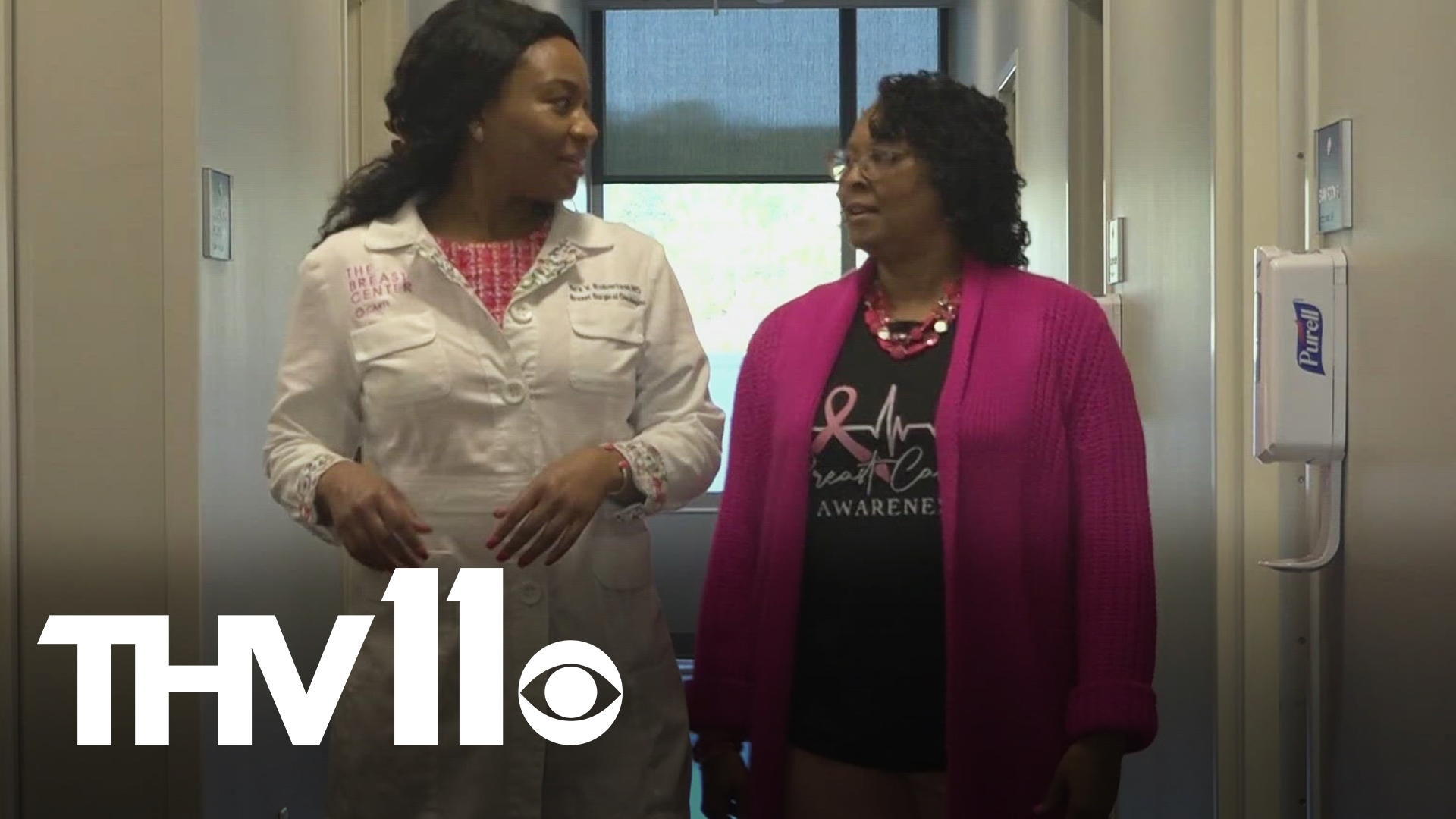JEFFERSON COUNTY, ARKANSAS, Ark. — Around 2,500 people are diagnosed each year with breast cancer in Arkansas and many women in the state lack access to services.
The disparity is worse in more rural areas like Jefferson County.
A new report by the American Cancer Society study released this month found that Black women are 38% more likely to die from breast cancer even though they are 5% less likely to be diagnosed with the disease.
That's why Dr. Yara Roberton, a breast surgical oncologist and medical director of surgical oncology at CARTI Cancer Center in Pine Bluff, stressed the importance of rural access to healthcare.
“I think it's elevated the care of breast cancer patients and cancer patients in south Arkansas," Robertson said. "Not only do we have, you know, have great screening tools for them, we also have advanced tools like PET scans, we have MRIs, we have CT scans."
A simple health check can be a matter of life and death, which was the case for Alveria Daniel.
“Do not put your mammogram off because I had something that you didn't feel. I mean, it was, it was in the earliest stages, so there was no lump. And if I would have skipped that year, who knows what the next year would have brought,” Daniel told us.
Daniel remembers "the call" after having her biopsy, which ultimately led her an hour from her home in Fountain Hill to the center in Pine Bluff.
She met with Dr. Robertson, one of south Arkansas's only breast surgical oncologists, and expressed her concerns for her health but also her family history including the death of her sister from breast cancer.
“Dr. Robertson was so thorough with giving me the information with what I had and what to expect and I'll never forget this," Daniel said. "Everybody has their own individual story, and do not forsake your mammogram for anything."
The pair have truly formed a special relationship and Daniel is just one of dozens getting this special care from doctors like Robertson.
“Breast cancer is not just one month. It's not just one day, and it's not the color of pink. My breast cancer patients live breast cancer 365 days a year and for breast specialists, we're treating breast cancer every day of the year," Robertson said.
Robertson said there are more clinical trials and more research. There are better treatment plans, better imaging, and more familiar faces.
“It's so important for not only for people of color to see a person of color taking care of them, but also a female doctor. I just think it's so important for us to be advocates for our patients and I just love taking care of them," Robertson said.
She said this is especially true when we are looking at the disparities in place.
“Black women are more likely to be obese, have diabetes, heart disease. But then also, we can't just blame the patient. Sometimes there are social constructs that are in place," Robertson said. "An example would be some of our patients who do endocrine therapy or hormone blockers. Another thing is the biology of the tumor. We sometimes get more aggressive breast cancer."
Daniels said for years she made it her duty to make others more aware, unbeknownst to her, she too would become a patient but now she’s cancer-free.
“It feels freeing. That's exactly what it feels. Because when you say, I will not forget that the hardest thing that I ever had to say was I've got breast cancer," Daniel said.
And with a new outlook on life, Daniels celebrates but also continues to advocate.
“It does not mean stop. It means that you still have to continue to get your mammograms. You still have to do your self-checks," Daniel said.
CARTI will soon host "Mammograms and Muffins" and it will be hosted from October 21 to 26 in Pine Bluff.

